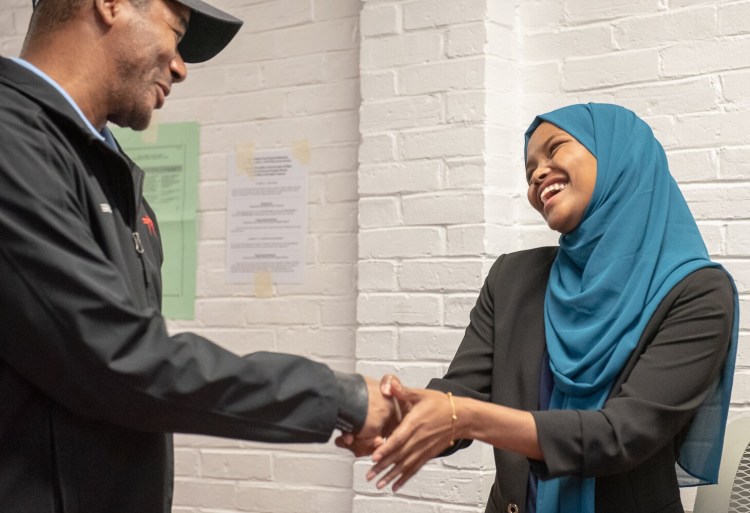In a series of votes that reflect how Maine is changing, at least seven first- or second-generation Americans won seats on their city council or school board following Tuesday’s elections.
In Lewiston, where the arrival of first Somali immigrants then others over the last two decades has brought new energy as well as its share of challenges, 23-year-old Safiya Khalid won nearly 70 percent of the vote to become the first Somali-American on the City Council.
Khalid’s candidacy brought out the worst in some, with racist comments and unrelenting internet trolls forcing her to shut down her Facebook page.
But the impressive newcomer did not wilt, and now Lewiston has a city councilor who looks like a fast-growing part of its population.
That’s no small thing. Not only does the presence of a Somali-American in city leadership tell Lewiston’s immigrant population that they have a part to play in the city’s future, it also guarantees that their perspective will be considered when decisions are made.
It’s also a sign that Mainers won’t let how someone looks or where they’re from keep a talented person from serving their community.
Khalid won’t just be representing other immigrants, but all city residents. In her short time in public life, she has shown a real dedication to community service. The city is fortunate to have her in a position of power, and the state is better off when people like her are given the opportunity to serve.
The same can be said for Claude Rwaganje, who on Tuesday won an at-large seat on the Westbrook City Council.
Rwaganje has amassed an impressive resume since coming to Maine from the Democratic Republic of Congo in 1996. He is the founder and executive director of Prosperity ME, which provides financial counseling to new immigrants. He has served on the board of the Portland chamber of commerce and was appointed to Federal Reserve Bank of Boston’s Community Development Advisory Council. In 2012, he was one of the Portland Press Herald’s Mainers to be Thankful For.
Now he will have a leading role in city government in Westbrook, where an influx of immigrants and refugees is starting to change the city in the same ways that happened in Lewiston.
Maine remains one of the least diverse states in the nation. However, in Lewiston, Westbrook and Maine’s other cities, demographics have been changing. In Lewiston, the city’s black population increased eight-fold from 2000 to 2010. In Portland, more than 60 languages are spoken by students in public schools.
Where communities are changing, their governments need to reflect that, not only to provide proper representation but also to smooth out communication problems and nullify stereotypes.
Together, communities can beat back the reflexive racism that comes up in times of demographic change — and which has been gleefully manipulated by a few small-minded political leaders and operatives.
Lewiston did just that on Tuesday — and in the process made their government look more like their community.
Send questions/comments to the editors.


